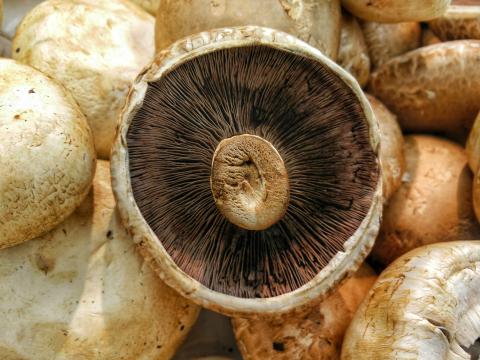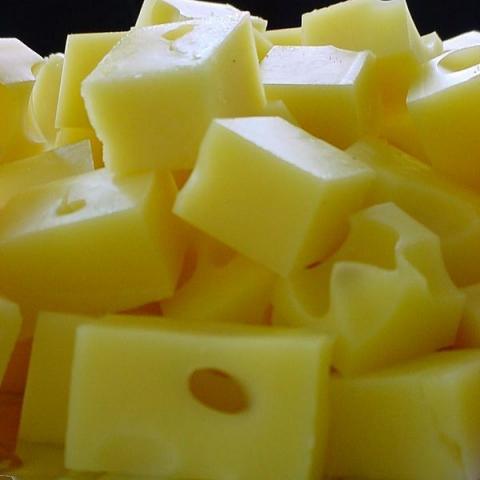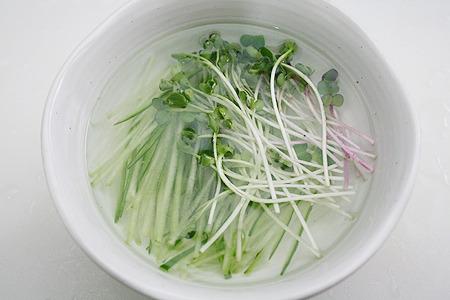
312-981-0409
33 N Dearborn St 10th Floor, Chicago, IL 60602
Serving Clients Across 7 Illinois Locations
Recent Blog Posts
29 People in 12 States Suffer from E.Coli Infection After Consuming Contaminated Nut Butter

In a recent blog post, we discussed the E.Coli outbreak that affected 12 victims in five states who had consumed nut butters and granola products produced by The SoyNut Butter Company. By the end of March 2017, the number of people impacted by the E.Coli outbreak had risen to 29. The victims were in 12 states: Oregon, California, Washington, Arizona, Maryland, New Jersey, Wisconsin, Missouri, Illinois, Florida, Virginia, and Massachusetts. The people affected ranged from 1 to 57 years of age, with a median age of 8. 59% of the people affected were male. No deaths were reported in conjunction with this outbreak, but 12 victims were hospitalized and of these individuals, nine developed hemolytic uremic syndrome.
Four Things to Know Before You File a Food Poisoning Claim Against a Restaurant

If you are served contaminated food in a restaurant, the restaurant may be liable for your food poisoning damages. But before you go ahead and file a personal injury claim after becoming ill from eating restaurant food, it is important that you understand a few important facts about filing a food poisoning claim. Below are four issues to consider and discuss with your lawyer before you move forward with your claim.
The Pathogen Responsible for your Illness Must be Identified by a Doctor
Your claim cannot simply state that you felt sick and experienced symptoms of food poisoning after eating in a restaurant. You must be able to prove that you suffered from the effects of a specific bacterial or viral infection, such as Salmonella, Listeria, Hepatitis A, or E.Coli. Your doctor can determine and document the cause of your illness through a stool or blood test.
You Need Evidence to Support your Claim
Food Poisoning or Stomach Flu?
When you find yourself running to the bathroom, clutching your abdomen in pain, and feeling lightheaded, nauseous, and simply lousy, you could be suffering from food poisoning. You could also be suffering from gastroenteritis, or the stomach flu. More than three million cases of gastroenteritis are reported in the United States each year. Like many types of food poisoning, its symptoms are easily self-treatable and often subside on their own after a few days.
Use the guidelines below to determine whether your illness is gastroenteritis or food poisoning. If your food poisoning was due to being sold or served contaminated food, you may be able to recover compensation for your damages through a food poisoning claim.
When Did your Symptoms Begin?
Food poisoning symptoms can appear two to six hours after consuming the contaminated food, but in some cases, they appear later than this. Symptoms of stomach flu, on the other hand, tend to appear 24 to 48 hours after exposure to the gastroenteritis virus. It can be impossible to know when you were exposed to a virus, but try to think back to who you were with one to two days before the onset of your symptoms. Did he or she appear to be ill? Ask about the symptoms he or she is experiencing.
Raw Milk Cheeses Recalled Over Listeria Concerns

Vulto Creamery of Walton, New York has recalled eight of its cheese products amid concerns of Listeria monocytogenes contamination. The recalled products are its Blue Blais, Hamden, Willowemoc, Miranda, Heinennellie, Walton Umber, Ouleout, and Andes raw milk cheeses, which were distributed nationwide and primarily sold at retailers in the Northeast and Mid-Atlantic regions. The products were also found in Chicago, California, Washington, D.C., and Portland, Oregon.
Listeria is a strain of bacteria that can cause severe food poisoning symptoms when consumed, particularly when it is consumed by individuals with weakened immune systems. When left untreated, Listeriosis can spread to the nervous system and cause the victim to suffer from convulsions, confusions, a stiff neck, and loss of balance. Treatment requires the use of antibiotics, which can be costly. Individuals who suffer from Listeriosis after being served or sold contaminated products may seek compensation for their damages through personal injury claims.
E.Coli Outbreak Linked to Nut Butter

The SoyNut Butter Company, an Illinois-based food manufacturer, recently issued a recall of all varieties of its I.M. Healthy nut butters and its I.M. Healthy granola products due to concerns about potential E.Coli contamination. 12 victims from five states, all but one of whom are younger than 18 years old, reportedly suffered from food poisoning symptoms after consuming these products. Of these victims, six were hospitalized. Four of the hospitalized victims suffered from hemolytic uremic syndrome. No deaths have been reported in connection to this outbreak. One of the victims in this lawsuit is being represented by Gary Newland of Newland & Newland, LLP.
Hemolytic uremic syndrome is a type of kidney failure that can be fatal. When an individual dies from consuming contaminated or otherwise harmful food because of another party's negligence, his or her loved ones may seek compensation for their damages through a wrongful death claim. In cases in which victims survive their illnesses, they may seek compensation for their financial damages related to the illnesses through personal injury claims.
Ways to Contract Foodborne Illness

There are many ways you can become ill after consuming food. You are probably aware that it is likely to become ill after consuming spoiled food. Though this can lead to food poisoning, it is not the only way to become ill after eating.
Below are numerous ways to potentially become ill after eating food. Be aware of the foods that put you at risk for each type of foodborne illness and how to reduce your chance of becoming ill. If you are pregnant, elderly, or have a weakened immune system, you have a greater risk of suffering from food poisoning than individuals who are not in these categories. Young children also have an increased risk of developing food poisoning. If another party's negligence is to blame for your food poisoning illness, such as a restaurant or a food vendor, you can potentially recover compensation for your damages through a food poisoning claim.
Consuming Spoiled Food
Sargento Cheeses Recalled Amid Listeria Contamination Concerns

Cheese manufacturer Sargento recalled seven of its varieties of packaged cheese amid concerns of Listeria contamination. No cases of illness have been reported in conjunction with the cheese. The company recalled its cheeses after a Listeria outbreak was discovered at one of its suppliers' manufacturing plants. Its Ultra Thin Sliced Longhorn Colby and its Chef Blends Shredded Taco and Nacho Cheese varieties were flagged as being potentially contaminated. To contain any potential outbreak, Sargento also voluntarily recalled five other varieties manufactured at the same facility: Sliced Pepper Jack, Sliced Colby Jack, Off the Block Shredded Fine Cut Cheddar Jack, Off the Block Shredded Fine Cut Colby Jack, and Chef Blends Shredded Taco Cheese. Other cheeses produced at this facility were sold as Meijer's store brand, Sara Lee, and Amish Classics products.
What Can I Do if My Pet Gets Food Poisoning?

Most Americans love their pets as if they were members of their families. Dogs, cats, and other domestic animals enjoy high quality veterinary care, organic pet food, and a range of products from accessories to toys to products to keep them safe. A pet's illness or death can be quite traumatic to the animal's owner.
Recently, capecod.com published a piece discussing the danger that xylitol, a compound used to sweeten gum and other products, poses to dogs. Xylitol is found in many food items that individuals share with their pets, such as peanut butter. When a dog consumes xylitol, it can experience food poisoning symptoms.
Can I Recover Compensation for Veterinary Bills?
Yes. However, you cannot do this in the same way that you would recover compensation for a human's medical bills.
Pets and other domestic animals are considered to be personal property in the eyes of the law. If your pet suffers because of another party's negligence and you then face high medical bills, you can seek compensation for your damages through a property damage claim. Generally, courts treat pets similarly to family heirlooms and other pieces of unique property – the sentimental value of the pet and the emotional anguish felt by the owner because of the loss are considered alongside the pet's market value, which is generally quite low.
Mouse Study Finds Food Poisoning Microbe Linked to Increased Appetite

A study from the Salk Institute for Biological Studies found that a bacterial protein known as SIrP can impact the appetites of mice infected with Salmonella strains that contain the protein. Two groups of mice were infected with Salmonella, one of which was infected with bacteria that contained the protein while the other was infected with bacteria that did not. The mice that were infected with the Salmonella bacteria that did not contain SIrP ate approximately 20% less food than the rodents in the other group and were much more likely to die as a result of their infection. The researchers found that the mice infected with Salmonella that produced SIrP continued to eat at a normal rate because the SIrP blocked the signals transmitted from the hypothalamus to the stomach that normally would slow their appetites.
Food Poisoning Risks of Consuming Raw Sprouts

Certain types of food pose a greater food poisoning risk to consumers than others. Generally, foods with organic sources, such as meat, dairy, and produce products are more likely to harbor dangerous bacteria than processed foods because they are not created in controlled facilities. This does not mean that they cannot harbor harmful bacteria. Any food or consumable product can cause an individual to suffer from food poisoning if it contains harmful bacteria or foreign objects.
One type of food that receives a lot of attention for its food poisoning hazard is raw sprouts. Sprouts can harbor E.Coli and Salmonella bacteria. In the past 20 years, sprouts have been linked to at least 30 food poisoning outbreaks.
Which Sprouts are Most Dangerous to Consume?
All types of seeds and beans are collectively known as sprouts. A few examples of commonly-consumed sprouts in the United States include:
-

Foreclosure and Bankruptcy
Visit Website -

Real Estate and Estate Planning
Visit Website -

Personal Injury
Visit Website

 Spanish
Spanish Cantonese
Cantonese















